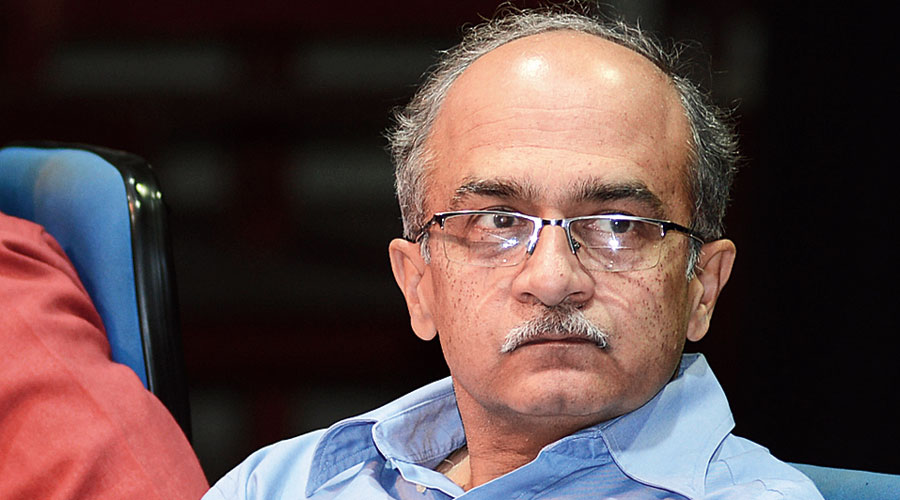Veteran journalists Arun Shourie and N. Ram and lawyer Prashant Bhushan on Thursday withdrew their Supreme Court petition that had challenged the constitutional validity of the provision that criminalises contempt for “scandalising” the court.
The bench headed by Justice Arun Mishra, who is scheduled to retire in the first week of September, allowed the withdrawal plea but made it clear the petitioners should not return to the Supreme Court with the petition after some time.
They have the liberty to approach an “appropriate forum”, the court said.
The bench is already hearing two contempt cases against Bhushan and is scheduled to pronounce on Friday the judgment in one of the cases that deals with two tweets by the lawyer.
The plea filed by Shourie, Ram and Bhushan was originally listed before another bench, of Justices D.Y. Chandrachud and K.M. Joseph. The petition was later listed before the bench headed by Justice Mishra as the two contempt cases against Bhushan were already pending before it.
The bench of Justices Mishra, B.R. Gavai and Krishna Murari was to hear the petition of Shourie and the two others on Thursday. Senior counsel Rajeev Dhavan, representing the petitioners, said he was withdrawing the petition since the bench already had a lot of other matters to deal with.
Dhavan initially sought permission to withdraw the petition with the liberty “to file it at a later stage”.
Citing the other cases before the bench, he said: “I do not want this matter to get entangled with the others or vice versa.”
Justice Mishra said: “We are allowing withdrawal but not permitting you to file the matter before us again.”
Dhavan said the petitioner would approach Delhi High Court at a later stage.
Dhavan cited the letter that the advocate-on-record for the petitioners, Kamini Jaiswal, had sent to the apex court registrar on Wednesday seeking permission to withdraw the petition.
“I have been instructed by the petitioners to request for withdrawal of the instant writ petition with liberty to file the same or similar petition in future before an appropriate forum. Therefore, I would be requesting the hon’ble court to allow the petitioners to withdraw the above writ petition with the aforesaid liberty,” the letter said.
The petition had sought the quashing of Section 2(c)(i) of the Contempt of Courts Act, 1971, as violative of Articles 19 (freedom of speech) and 14 (equality) of the Constitution.
The section defines what constitutes criminal contempt and lays down what “scandalises or tends to scandalise, or lowers or tends to lower” the authority of a court. The section invites a maximum punishment of six months in jail.
There is another form of contempt — civil — which deals with wilful disobedience to any judgment, decree, direction, order, writ or other process of a court or wilful breach of an undertaking given to a court.










